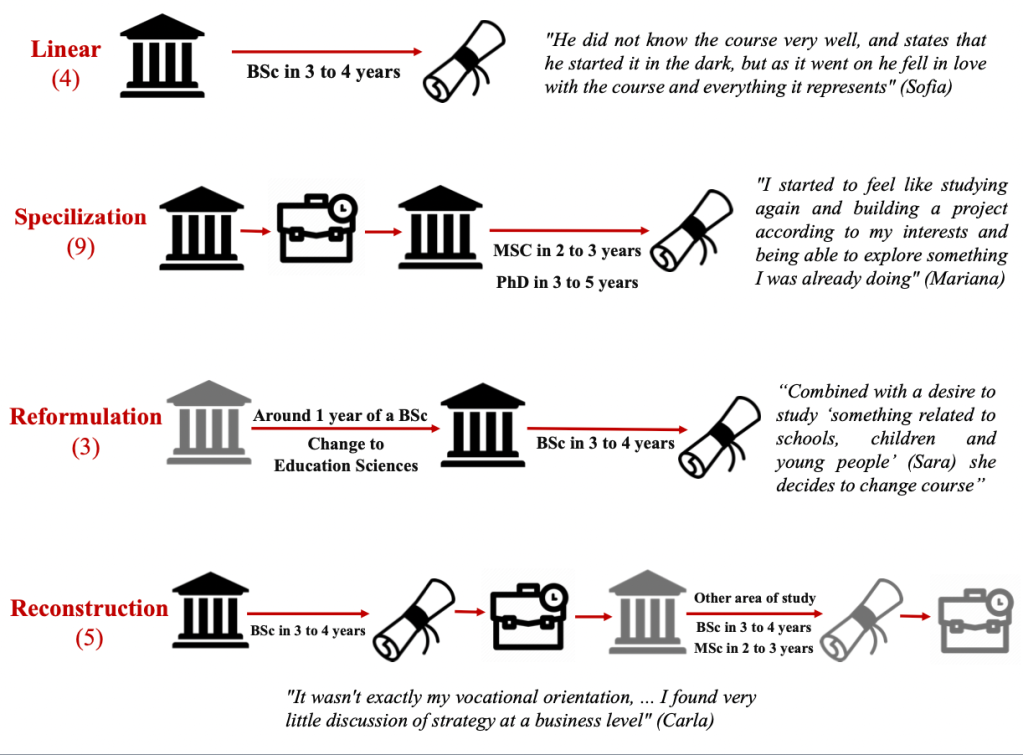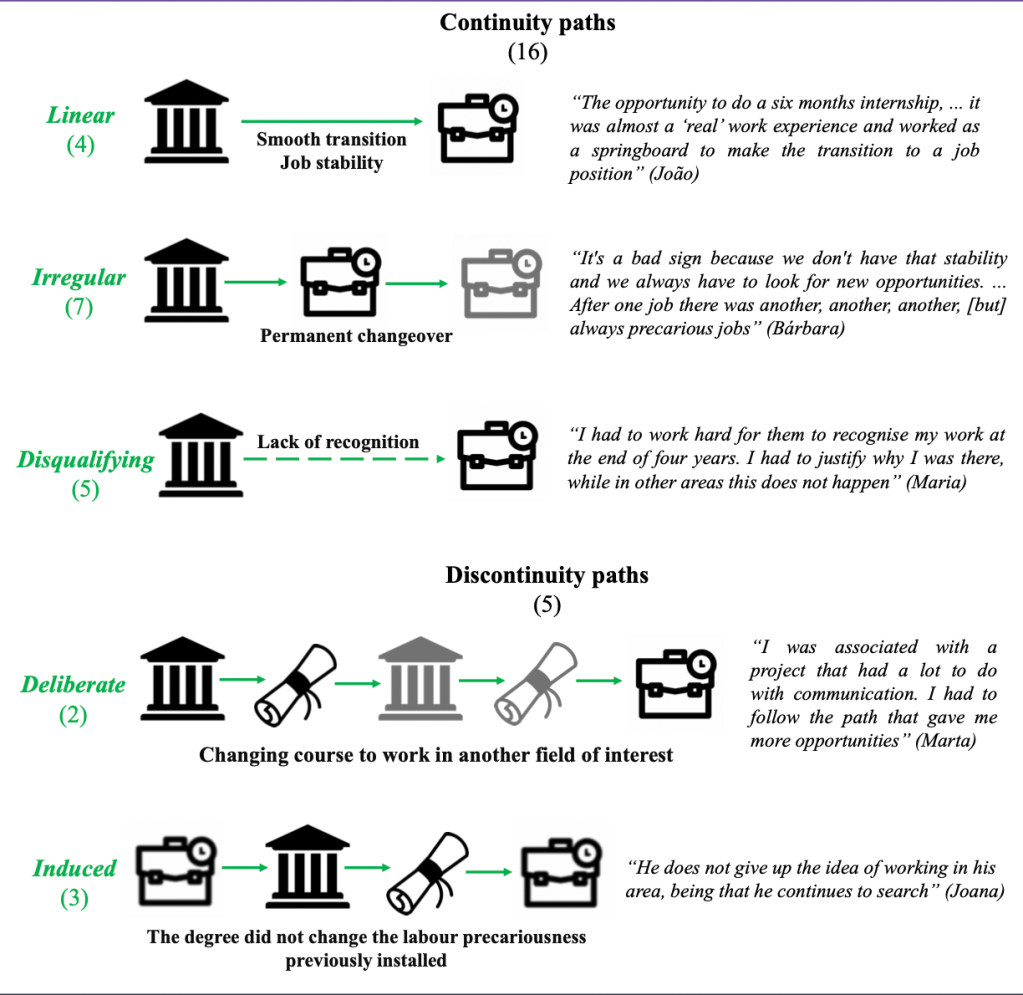
In Portugal, Education Sciences lacks social and economic recognition. However, the political and scientific fields have been granting visibility to this area. Allied to this situation, the break in the linearity between the higher education and work is concerning. In other words, educational responsibilities fall on the students under the notion of the skills that make us employable (e.g., soft skills) and labor responsibilities fall on people who work based on precarious work typologies (e.g., informal work - without a formal contract).
Based on these concerns, interviews were carried out with graduates of bachelor's, master's, and doctoral degrees in Education Sciences in order to systematize and understand their academic and professional paths. To this end, narratives were built around their academic and work practices in order to develop generalizable paths around these two fields.
That said, it was possible to draw four types of academic trajectories (Image 1): linear (completing a degree and continuing into the labor market), specialization (continuing studies at the master's or doctoral level to deepen a topic in which one works), reformulation (transition from any degree course to a degree in Education Sciences with the aim of working in the area), and reconstruction (completing a degree in Education Sciences and, due to the difficulty in finding work, completing another degree in another area of study with the aim of working outside Education Sciences).
Image 1. Academic trajectories

It was also possible to draw five professional trajectories (Image 2): linear (stability in the transition to the labor market and in the professional path), irregular (constant change of work), disqualifying (the degree in Education Sciences is not recognized at work - e.g., work in the educational field, but based on functions considered inferior to those qualified by the degree), deliberate (closely linked with the academic paths of reconstruction - completion of another higher education course to change the labor path, in this case, outside of Education Sciences) and induced (the degree in Education Sciences had no effect on changing the previously installed precarious labor path).
Image 2. Professional trajectories

Thus, understanding these trajectories promotes the adjustment of pedagogical practices in Education Sciences courses around the identified work areas and academic interests, and guides partnerships with the socio-economic fabric.
Finally, I want to emphasize that we are very happy that the Best Poster Award was given to us, namely due to the recognition it symbolizes by all the academics and education professionals that were present at the event.
Thank you!
Share this post
About Miguel Correia, MSc
Miguel Correia, MSc – Master's degree in the domain of Health Citizenship and Bachelor's degree in Education Sciences, currently working on the topics of global health and global citizenship, and academic and work trajectories in Education Sciences. miguel.correia.fpceup@gmail.com
About Professor Henrique Vaz, PhD (University of Porto/Center for Research and Intervention in Education)
Professor Henrique Vaz, PhD – Assistant Professor in the Faculty of Psychology and Education Sciences at the University of Porto, currently working on adult education and lifelong learning, socioeducational mediation, school to work transitions, academic mobility, and social inclusion. henrique@fpce.up.pt
